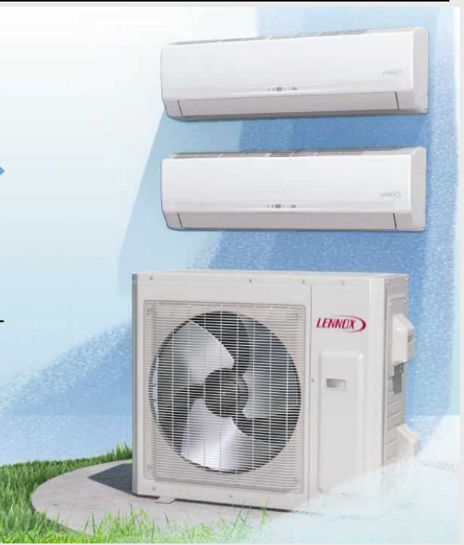The HVAC System
HVAC consists of Heating, Ventilation, and Air Conditioning. It includes various systems that not only maintain airflow within indoor and outdoor areas but also provide commercial buildings and residential homes with heating and cooling round the clock. The function of air movement maintains the humidity level and keeps the indoor atmosphere fresh and healthy. Several vital parts make up the HVAC system, so you can even purchase them directly from a reliably-sourced HVAC parts supplier.
On the other hand, appliances like hot water heaters help heat water and can even store it within your home at a steady raised temperature.
HVAC Systems With Water Heaters
Want to know whether an HVAC system includes water heaters?
As mentioned above, this system consists of the component of heating, which is one of the main functions of water heaters.
The standard HVAC system does not come with a water heater since those are normally included in the plumbing system of a house. However, modern HVAC systems in recent years have come with hybrid/heat pump water heaters or hot water boilers that can supply hot water as well as heat at the same instant.
What Is A Hybrid/Heat Pump Water Heater?
A heat pump HVAC system can be compared to an air conditioning system. An AC unit pushes warm air out when cooling, while a hybrid water heater pushes warm air into heat homes in the winter months. Although these systems are similar to traditional water heaters with storage tanks, they do not produce heat to warm the water but use the air like an HVAC system.
How They Work
Instead of taking the time to generate heat itself, heat pump water heaters use electricity to draw heat from the air in the surroundings. That heat is then stored in a tank, heating the water in it and maintaining that high temperature. In addition to better effectiveness, this process also allows hybrid water heaters to be more energy efficient than conventional water heaters that do not have electric capabilities.
The Pros
- Higher Efficiency
As mentioned above, these heaters pull heat from the air and do not have to work double-time to produce heat. This popular function is what gives them higher efficiency over other standard models. Using a hybrid/heat pump heater can help you save a significant amount of money on energy and utility bills. Not to mention longevity, as well-maintained quality heaters can last 12-15 years.
- Environmentally/Family Friendly
Another advantage that comes with heat pump water heaters is that it removes the possibility of any gas leaks or emissions that can be toxic to the environment or your family. In addition, the unit is safe enough for kids or pets to be around since it does not get too hot even when kept outdoors.
The Cons
- Higher Initial Costs
Pros aside, these water heaters do come with almost double the cost of other traditional models, which can be out of budget for many people. The upfront price can go up to $3,300 if you exclude installation. However, these hybrid devices with higher initial costs come with lower operating expenses.
- Cold Climates
Since they are using the air, hybrid or heat pump water heaters function best in warmer areas with the surrounding temperature at 40°F or higher. Therefore, a furnace room would be the best spot to have it installed.
What Is A Hot Water Boiler?
Boilers generate heat for your home, making them an essential component of HVAC systems. Boilers heat water which is carried to showers, faucets, dishwashers, and washing machines through pipes. In addition to heating water for all the washing appliances in your home, boilers also utilize the heated water to provide warmth within the house for you to be comfortable during the winter months.
You can purchase tanked or tankless versions of the hot water boilers. The tanked boilers preserve the water, while the tankless models deliver hot water on demand.
How They Work
Boilers are essentially water heaters with a specific purpose. With the boiler system, heat gets transferred to every room throughout the house in the form of hot water flowing through radiators. Water that needs to be reheated returns to the boiler. This hot water or "hydronic" system differs from the process through which furnaces carry heat through the air. Boilers are different also because they use oil or natural gas and a pump to distribute hot water instead of the fan and duct system.
The Pros
- More heat than standard air-heating systems
- Energy efficiency
- New technology enables reliability and convenience
The Cons
- Costly installation
- Regular boiler pressure and safety checks
- Specific maintenance guide
Maintenance Measures: Water Heaters In HVAC Systems
- All vents/ducts need to be cleaned so that nothing can block the airflow.
- Regularly check for any water, fuel, gas, and electricity leaks which could raise operating costs if left unchecked.
- Check your unit for low water levels every month to avoid damage.
- Oil your HVAC systems parts often for smooth movement.
- Drain the remaining water in the system every six months with a deep clean to avoid mould
- Lime collects whenever hot water circulates through a motor for a long period. De-scale to get rid of any that has accumulated.
- The water heater and its pipes should be good insulators to preserve heat and conserve energy. Avoid heat loss as much as possible.
- Conserve energy by running your water heater at lower temperatures at times.
To Conclude
All in all, conventional HVAC systems may not come with water heaters, but modern times have brought systems that do. Keeping in mind the numerous advantages they bring to a home, not having to buy individual appliances and paying for their installation separately is the biggest one.
After comparing the two, we can easily deduce that an HVAC unit with a water heater/boiler is more convenient, uses less energy, and is more environmentally friendly than ordinary water heaters. However, do not forget to choose the appropriate model that caters to your home size and climate!


